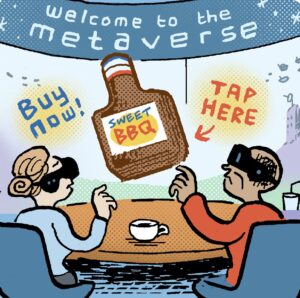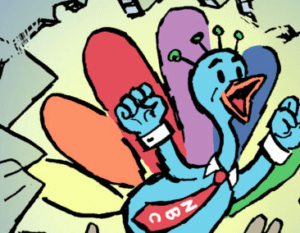Here’s today’s AdExchanger.com news round-up… Want it by email? Sign up here.
The New Apple
October 25 quietly marks a big step for Apple’s ambition to become one of the world’s largest advertising companies.
Starting today, developers can promote themselves directly in the “Today” section of the App Store, MacRumors reports.
The “Today” section is a sweet chunk of new inventory, a bit like YouTube’s homepage takeover. It’s significant because it’s the first-ever paid Apple App Store homepage placement. Previously, developers could only rank by category, buy search ads or hope to appear on a curated list selected by the App Store’s editorial staff.
But wait, there’s one more thing: Apple is also adding “You Might Also Like” ads to the bottom of app listings. No doubt this will further infuriate developers as a blatant conquesting tactic.
Google and Amazon also force brands to defend their own keywords. People just aren’t used to Apple getting in on that game yet.
Also new this week, Apple changed the App Store guidelines so that “boosts” – which is when accounts pay to promote posts – now qualify as in-app purchases. (H/t @eric_seufert.) It’s a ridiculous miscategorization of in-app purchasing that only makes sense when you consider that the change entitles Apple to 30% of the revenue.
TV On The Go
From inconsistent audience measurement to cruddy ad experiences, streaming television “remains rife with challenges,” The Wall Street Journal reported last week.
Nothing new there. But NBCUniversal’s president of advertising, Krishan Bhatia, has penned a blog post rejoinder contending that the Journal “couldn’t be further from the truth.”
It’s not every day that a major TV programmer publicly responds to an industry pulse check. But, writes Bhatia, “nowhere does progress feel more apparent – and ignored – than in measurement.”
It’s dismissive, he argues, to ignore the strides made by the TV industry, which has been on overdrive to build privacy-based data solutions and rapidly embrace programmatic ad mechanics.
Specifically, the WSJ featured comments from Kelly Metz, Omnicom’s managing director of linear and advanced TV activation, referring to the insufficient data transparency buyers get into TV and streaming media placements.
And, to be fair, NBCU’s own Kelly Abcarian agreed at AdExchanger’s recent Programmatic I/O conference that buyers need access to show-level transparency in their media buys. The truth hurts – but it’s only by acknowledging it that the industry will keep moving forward.
Let The Games Begin
The stock market is disintegrating, and streaming services are struggling to turn a profit. Next stop: media consolidation.
“Two kinds of consolidation seem inevitable,” writes Lucas Shaw at Bloomberg.
The first is programmers merging. We’ve already seen the formation of Warner Bros. Discovery and the reformation of ViacomCBS as Paramount. And the other option is for TV and gaming companies to merge.
Microsoft has cracked gaming, but remains the most distant by far to having its own entertainment production or content hub, like Apple, Amazon or GoogleTube. (It’s not a coincidence Netflix likes Microsoft.)
But consider Pokémon GO. Most people remember that the game had a moment back in the summer of 2016 and haven’t thought much about it since. But Pokémon GO’s average annual revenue over the past five years is likely on par with or higher than some of the top Marvel franchises. And, unlike Marvel, Niantic, the maker of Pokémon GO, doesn’t have to spend as much on production and promotion as movies do.
Now that the big movie studios are mostly snapped up, guess the gaming libraries are up next.
But Wait, There’s More!
Twitch’s relationship with streamers is showing cracks after the company announced it will take a bigger cut of ad revenue. [NYT]
Some private equity firms are struggling to comply with the SEC’s new rule on how their marketing describes fund performance. [WSJ]
Google has a new open-source project that aims to change how the industry understands software supply chains. [Beta News]
Aram Zucker-Scharff opines on the characteristics of an effective consent signal. [blog]
YouTube introduces an interface makeover. [MediaPost]













